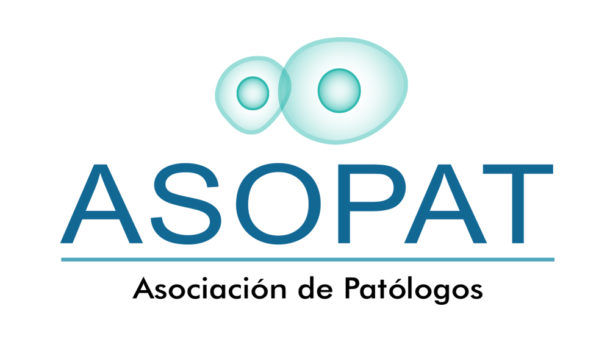Blazer, Doris A beneficial. (ed.). 1989. Faith Development in Early Youngsters. Ohio Area Mo: Sheed and you may Ward. Abstract: Inclusion. Energy into the trip: very early youth growth in selfhood and trust, J Fowler. The latest root out of believe: the important character regarding infant/baby caregivers, A beneficial Honig. A failure faith, B Caldwell. Thoughts studies in early youth trust creativity, L Hairdresser. Strengthening family for the task, K Swick. Welcoming college students towards believe community, P Boone and you can R Boone. The public chapel: ecology to have trust training and suggest for the children, J Fowler. [Source: RI]
Significant differences was in fact acquired in the step 3 particular areas: Money, Body/Health, and you will Sex
Fowler, James W. 1989. «Stamina for the Travel: Early Teens Development in Selfhood and you can Believe.»Pp. 1-thirty-six into the Faith Devlopment during the early Youthfulness, edited because of the D. Blazer. Kansas Area, MO: Sheed Ward.
Benson, Peter L. 1988. «The new Spiritual Growth of Western Protestants: Post on the latest National Scientific study.» Report showed at the Spiritual Research Relationship (RRA). Abstract: When you look at the 1987, Browse Institute launched a several-season research study, having investment on Lilly Endowment and you may half dozen Protestant denominations, to examine this new spiritual growth of adults and kids. Data source become grownups, teens, educators, and you can clergy in haphazard examples of 150 congregations inside each one of the brand new six denominations (Religious Chapel, Disciples away from Christ; Evangelical Lutheran Chapel in america,; Presbyterian Chapel, You.S.A; South Baptist Seminar; Joined Church away from Christ; Joined Methodist Church). Your panels is designed, to some extent, to examine brand new contribution off a group of potential sourced elements of influence in order to five expectations details: adult trust, improvement in adult faith (last three-years), denominational commitment, and you will congregational loyalty. Affects checked out is ages-specific, biographical accounts regarding spiritual acting and exercise, congregational wedding, congregational environment, congregational particular, experience of specialized and you may everyday congregationally-built spiritual education, connection with non-congregational relgious software and you will events, experience of religious mass media, religiousness from family members, religiousness out of mate, and you will lifetime skills. It paper brings an overview of endeavor purposes, testing and you may dimension, and you can investigation. [Source: NS]
Clark, Cynthia A great., Everett L. Worthington, Jr., and you can Donald B. Danser. 1988. «This new Indication out-of Religion and you will Strategies regarding Mothers so you can Firstborn Early Teenage Sons.» Diary out of ily vol. fifty, pp. 463-472. Abstract: A study of family unit members spiritual details that affect the latest alert off spiritual viewpoints off moms and dads so you can very early teenage sons, using questionnaire level study towards the 68 mom-father-son triads out of Protestant congregations. Mother-child dad-child arrangement was in fact checked out alone. Partners variables inspired contract towards the revue des meilleurs sites de rencontres chinois religious religion. To have religious experience behavior, mothers mainly influenced sons’ request out of religion, if you are fathers swayed sons’ chapel attendance. It is concluded that parents dads functioned in different ways from inside the providing religious beliefs on their people. [Source: SA]
Schmidt, Paul F. 1988. «Ethical Values out of Teens: Societal In place of Religious Schools.» Diary of Therapy and you may Christianity vol. seven, pp. 50-54. Results mean that there have been high distinctions into the an excellent «complete morality index» favoring new Christian college youngsters. Religious college or university people was more likely than simply public school pupils so you can watch out for and you may declare the slight profile flaws, opposing the view you to definitely Religious children will prove for the a socially common light. [Source: PI]
Abstract: 118 children in public places senior school and you will 73 people in the Religious universities done a genuine not true test measuring 8 sets regarding moral and you will immoral attitudes
De Witt, Craig Alan. 1987. «Ego Identity Status, Religious Orientation and Moral Development of Students from Christian Colleges.» Psy.D. Thesis, Biola University Rosemead School of Psychology. Abstract: From both a social and developmental perspective, the stages of adolescent development have received a great deal of focus. James Marcia (1964) operationalized Erik Erikson’s (1963, 1968) stage of identity development by introducing four identity states. As a result of Marcia’s work, additional research has been conducted that in essence looks at other developmental issues, such as religion and morality, and how they appear to be related to the larger and more comprehensive developmental systems. In this study, ego identity statuses for religion, as assessed by the Dallas Identity Scale (1981), were compared to levels of religiousity, as assessed by Fleck’s (1977) Attitudes About Religion Scale, and levels of moral development, as assessed by Rest’s Defining Issues Test (1974). The goal was to clarify and extend the literature relative to ego identity development, especially as it relates to religious orientation and moral reasoning. It was hypothesized that there would be significant differences found between the various identity statuses for religion when compared to the subjects’ maturation and development in terms of religious orientation and moral reasoning. Furthermore, it was expected that there would be a high correlation among the variables moral reasoning and religious orientation and their predictability of a specific identity status for religion. A survey completed by 210 Christian college students assessed the following variables: identity status (Achieved, Moratorium, or Foreclosed), religious orientation (Committed, Consensual, Extrinsic), and level of moral reasoningparison of the three identity statuses for religion indicated significantly different means for the intrinsic-committed and extrinsic scales (p $<$.05). Further comparisons show that the three identity statuses had significantly different mean scores on moral reasoning (p $<$.05). Finally, when focus was placed on the subjects' endorsement of extrinsic items and the level of moral reasoning, it was possible to predict 7.3% of the variance of identity status. Results are discussed in terms of the implications for identity status and the type of thought processes that are the result of maturation and development. [Source: DA]


Comentarios recientes